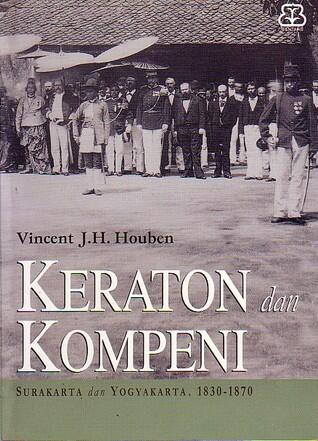
Keraton dan Kompeni: Surakarta dan Yogyakarta, 1830-1870
Brak ocen
Format
Miękka okładka
Strony
785
Język
Angielski
Opublikowany
Dec 1, 2002
Wydawca
Bentang Budaya
Opis
In the mid-19th century, the author delves into the intricate dynamics of colonial exploitation as it unfolded in Surakarta and Yogyakarta. This era was marked by profound socio-political changes, where the interplay between local authority and colonial powers became increasingly complex. The narrative highlights the tensions and adaptations within these Javanese courts, revealing how traditional structures responded to external pressures.
Readers are introduced to a rich tapestry of historical events and cultural exchanges that shaped the region. The authors meticulously analyze the relationships between the native rulers and the Dutch colonial administration, showcasing the strategies employed by both sides to navigate their evolving roles. The book paints a vivid picture of a society in flux, ripe with stories of resistance, accommodation, and resilience.
Through extensive research and thoughtful interpretation, the work offers a fresh perspective on a pivotal period in Indonesian history. It invites readers to consider the legacies of colonialism and the lasting impact these interactions had on the cultural and political landscape of Java. This exploration not only enriches the understanding of the past but also encourages a dialogue about its significance in contemporary times.
Readers are introduced to a rich tapestry of historical events and cultural exchanges that shaped the region. The authors meticulously analyze the relationships between the native rulers and the Dutch colonial administration, showcasing the strategies employed by both sides to navigate their evolving roles. The book paints a vivid picture of a society in flux, ripe with stories of resistance, accommodation, and resilience.
Through extensive research and thoughtful interpretation, the work offers a fresh perspective on a pivotal period in Indonesian history. It invites readers to consider the legacies of colonialism and the lasting impact these interactions had on the cultural and political landscape of Java. This exploration not only enriches the understanding of the past but also encourages a dialogue about its significance in contemporary times.
Recenzje
Nie ma jeszcze recenzji
Bądź pierwszy, aby zrecenzować tę książkę i podziel się swoimi przemyśleniami
Dodaj pierwszą recenzjęDziennik czytania
Nie znaleziono dzienników czytania
Zacznij śledzić swój postęp w czytaniu, aby zobaczyć logi tutaj
Dodaj swój pierwszy dziennik czytaniaNotatki
Dziennik transakcji
Nie znaleziono dzienników transakcji
Zacznij śledzić swoje transakcje książkowe, aby zobaczyć logi tutaj
Dodaj swój pierwszy dziennik transakcji